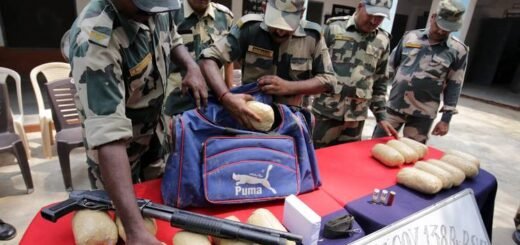Suppression of Uyghurs by China and its relationship with India
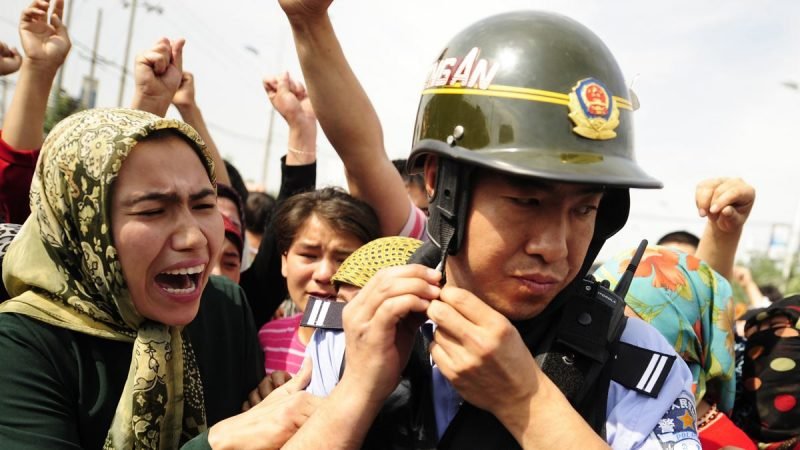
China is a multi-ethnic country with about 55 minority ethnic groups and still, oppression of minorities in the country is not new. It is believed that the Communist Party in China has been suppressing the Uyghur population in the Xinjiang region of China since the very beginning when the autonomous region was incorporated in China in 1949. It is not new to the world how the country has been violating the basic human rights of the Uyghurs and has been trying to put an end to all the religious practices followed by the Uyghur community. There are around 11 million Uyghurs living in Xinjiang who come under the radar of the Communist Party. These Muslim Turkic speaking people, who are recognized ethnic minorities of China, have been targeted by the government and with time the situation has gotten worse and now has gathered international attention also.

Uyghurs and Han Chinese: The Ethnic Conflict
Xinjiang was declared as an autonomous region but it is believed that it was never autonomous under the People’s Republic of China. Xinjiang region of China is rich in minerals and natural resources and therefore the government paid attention to developing the region. In order to do so, young and educated Han Chinese people were encouraged to migrate to Xinjiang for a better job, better earning, and a better standard of living. They were encouraged to migrate to the region to do the labour work and were placed in jobs to develop the minerals industries of the region and also the natural resources. During the 1990s, Xinjiang saw serious migration of Han Chinese people and by the end of the 20th century, Han Chinese covered 2/5th of the population of the autonomous region of China. The majority population of China which accounts for almost 90% of the population of the country, Han Chinese, was now given preference by the government of China. They were given better jobs and were doing economically way better than the Uyghurs. The Uyghurs were settled with mediocre jobs and faced a huge financial crisis as the Han population was growing economically and were preferred by the Chinese government. This preference and bias by the Chinese government made the minority feel threatened. They were not able to enjoy their rights and were denied opportunities in their homeland which gave fire to the agitation and anger amongst them. Uyghurs demanded independence from the constant biased behaviour of the Chinese government and demanded their basic human rights and a secure future in their homeland. This ethnic conflict which was coupled with the financial crisis faced by the Uyghurs led to protests and to the violent riots in 2009 in Urumqi between Uyghurs and Han Chinese which changed the fate of the people in Xinjiang. Protests, violent riots, bombings and attacks were things that were not new to the region after the riots and this unstable situation and civil unrest made the government take serious action and control in the region. For the first time, there was an internet cut off in the region. The 2009 riots changed the policy framing of Xinjiang. Now the main aim of the government was to crack down the Uyghurs, claiming them to be separatists and affiliated to terrorist groups and in the name of combating “terrorism” and maintaining peace in the region, the government launched “Peoples war on terror”. The terror, according to the government, was imposed by Uyghurs and acted as a threat to the country and the war was technically against them. This ‘war’ changed the life of Uyghurs in the region and changes started taking place radically.
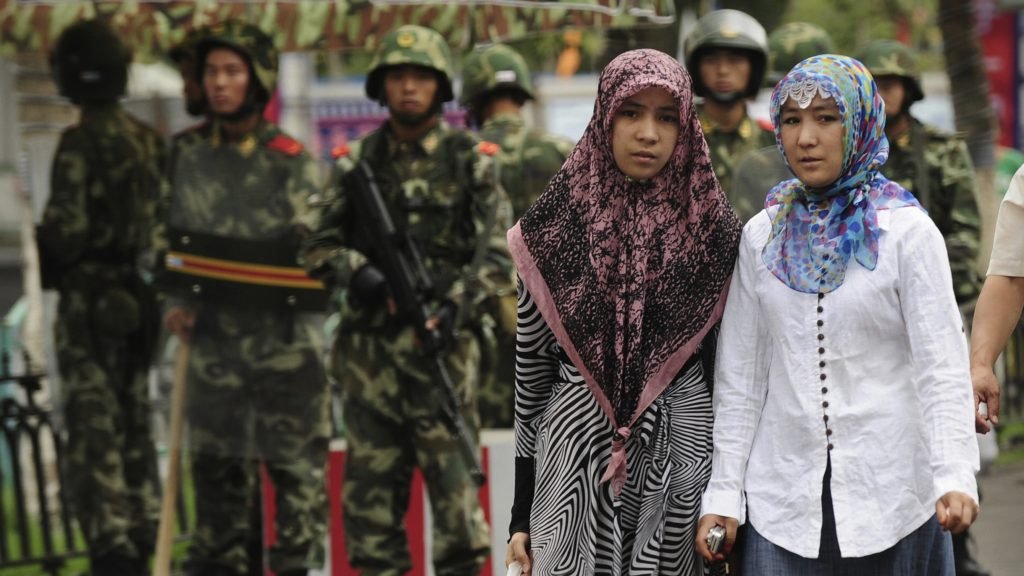
Xinjiang became a digital police state and restrictions were implemented on basic rights like freedom of speech and expression and freedom to practice religion. New police checkpoints were introduced all over the region. The autonomous region became a testing ground for the newly developed latest technology. Biometric information of the resident of Xinjiang was collected including fingerprints, blood samples, and voice samples. Cameras with facial recognition technology were set up all around the state to track every movement of all the residents of the region. In the name of separatism and counter-terrorism, the government put a halt on the peaceful practice of their culture. In 2014, the government banned all the Muslim civil servants from keeping fast during Ramadan, a festival celebrated by Muslims worldwide. The cultural activities of Uyghurs were completely stopped in Xinjiang. The communist party members, since 2014, were supposedly staying inside the homes of the Uyghurs to report any extremist behaviour that comes to their notice. Uyghur parents were banned from keeping the religious names of their children like Mohammad. Mosques were destroyed and Uyghurs were not allowed to practice their religion at all. An Anti-extremism law was passed in 2017, which banned Muslim men to grow long beards and women were not allowed to wear hijab in public. Activities like making a call abroad or a visit outside China and keeping Islamic books inside the house were claimed as illegal by the communist party. The passports of Uyghurs were confiscated by the government which made it very difficult for many Uyghurs to go outside China. The government of China has also taken a step into the education of Uyghur children. Uyghur language, by 2016, was banned completely in the schools, and the children were supposed to study all the subjects in Mandarin, a language that is spoken by the majority in China. The government encouraged Uyghur parents to send their children to schools in the inner provinces of China for a better education. By 2016, no one was allowed to speak the Uyghur language in not only schools but any public place.
Chinese Detention Camps: The Modern Nazi?
The authority of the Chinese government on the Uyghur population intensified with the creation of detention camps which started in 2017. In 2017, camps were constructed for the Uyghur population and other Muslims of the Xinjiang region, and thousands of them were taken into these camps. These camps have been described differently by a different organization and the definition of these camps has been changed over time. In August 2017, United Nations described these camps as ‘internment camps’. In August 2018, China referred to these camps as ‘re-education centres’, and then again in October 2018, the government called these camps ‘vocational training centres’. In January 2019, the US claimed that these camps are nothing but concentration camps for the minority group of China. A report by the United Nations was published in August 2018, stating that about a million Uyghur people were detained in these camps and are treated as prisoners. After this report, the Chinese government defended itself by saying that these camps were nothing more than training centres to re-educate the population and erase the ‘extremist ideology’ that Uyghurs follow. From 1933 till 1945, during the World War II, the world noticed the most horrific event in the history where Nazi Germany under Hitler, created concentration camps and killed millions of Jews saying that their life was unworthy and that they were racially different. This was Hitler’s final solution. Targeting a community for the mishappenings in the region and snatching away the basic human rights and treating them as an inferior community is exactly what is now happening in China. Uyghurs are treated as the inferior community and are believed to spread hate and terror in the country and standing with these points, the government of China justifies the concentration of these camps. The government wants to remove all the traces of their religion which they think spreads extremism.
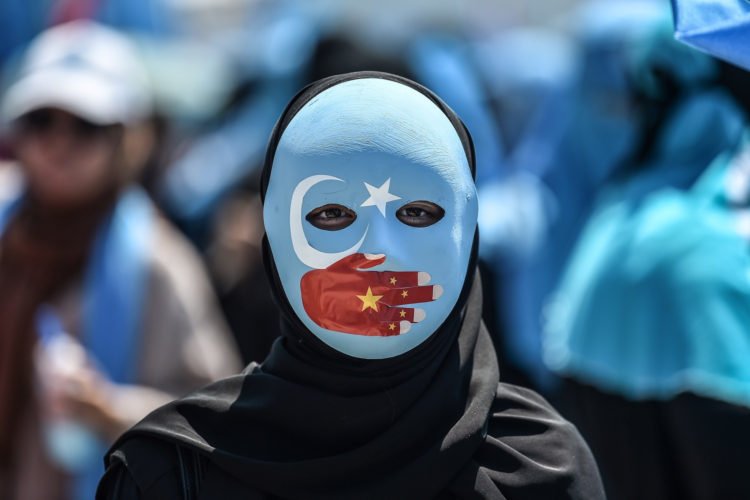
Since the construction of these detention centres, the lives of Uyghurs in Xinjiang has become much worse. The Uyghurs in the Xinjiang region are arrested and put in the camps for crimes like using WhatsApp (a messaging app that is banned in China). These ‘training centres’ are very strictly guarded and are protected with great secrecy. In 2019, footage of the camps was released where there were men, belonging to the targeted Muslim community, who were shaved and blindfolded. China has been expanding these camps at an alarming rate all over the region.
Since 2017, many Uyghur intellectuals have been arrested and put into prison or in the camps constructed by the Chinese government as they pose a great influence over the population. These not only include scholars and professors but also students and journalists. The Uyghur children are sent to orphanages and these state-run orphanages put these children up for adoption by the Han Chinese parents. Older children are sent to schools in the inner region of china where their names are changed to those Han Chinese names. By doing this, the government is trying to transform the identity of these children and removing the slightest of the traits of their culture. The government wants the children to respect the communist party and the country above their religion Relatives of these Uyghur families who are being tortured and put into detention centres are not being able to contact their family members.
Since 2015, the Uyghurs have faced immense torture and have witnessed abuse of their basic human rights by the hands of the government of China. The life of Uyghurs in Xinjiang is no less than prisoners, where their crime was that they demanded their rights and preached their religion. Uyghurs are not safe in their own houses, their own motherland has become a living hell for them.
- The traditional clothing of the Uyghur community has been banned in the region. It was made illegal to wear any traditional Uyghur dress in public places. Children of Uyghur parents were encouraged to wear the traditional Han Chinese attire to school. The dress code is strictly monitored by the government after the Anti-terror law in 2016.
- The Uyghur businessmen who do not sell alcohol or cigarettes in their shop as their religion do not allow the consumption of the same are fined by the government or their shops are forcefully closed and in many cases, the owners of the shops have been sent to the concentration camps.
- Buildings that represent the history of the Uyghur community and also the history of East Turkestan have been demolished by the Communist Party in the view of erasing the Uyghur history from the region and reducing the importance of their history and culture among the community. The Chinese government has built some traditional type of Chinese tombs to show that the region and the Uyghur community have been an important part of China for a very long time.
- Uyghur women have been forced to marry Han Chinese men. They were allegedly harassed and raped by Han Chinese men and by the military personnel. Uyghur women are being forced to take regular pregnancy tests and to use intrauterine devices and sterilization as well and even abortion of hundreds of Uyghur women in order to reduce the population of the minority group in the region and along with this Han Chinese men are encouraged to produce more children. The birth rate of the Uyghur people has been decreasing drastically since 2016 and the use of IUDs and sterilization has been increasing in Xinjiang.
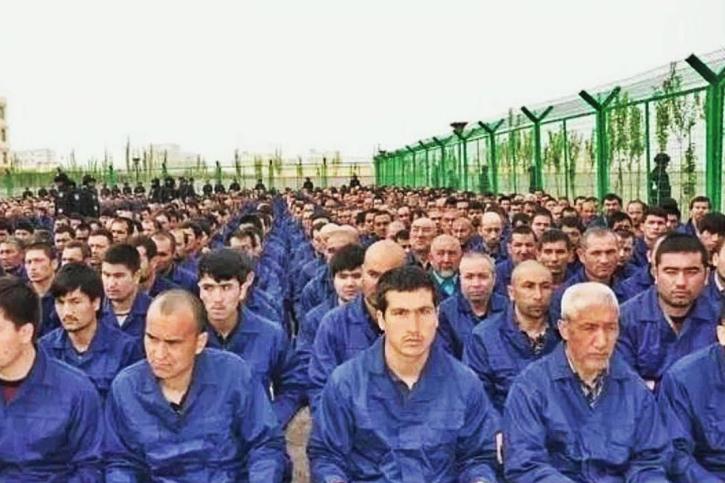
- By 2019, it was reported that almost 3 million Uyghur people were held and kept as prisoners in the concentration camps built by the government. Detainees, who have spent a long time in the camps have described their time spent in the camps as full of torture. They were interrogated for a long period of time and harsh measures were used. The detainees were supposed to sleep in an overcrowded cell and had to follow the brutal daily regime of party indoctrination which made several detainees commit suicide.
- The Uyghurs were forced to eat pork and drink alcohol which is against their religion. By doing this the government wanted to diminish their loyalty towards their religion.
- Hundreds of mosques were destroyed by the government in the Xinjiang region, even the oldest mosques which had a history of almost 800 years. It has been reported that the government is now constructing public toilets in place of the mosques.
Today, the Xinjiang region is being promoted as a tourist place by the Chinese government. Images and videos are released showing how happy Uyghur people are in the Xinjiang region. Videos of Uyghurs dancing for the tourists who visit the region are uploaded. Images where Uyghur students of Xinjiang are studying communist history and are also studying Mandarin, the most spoken language in China. These images and videos are very strictly controlled, monitored, and tampered by the Chinese government. The Chinese government invited diplomats from various, almost a dozen, countries including India and gave a tour to them to the Xinjiang region to show the progress of that region to the world. China invited a few foreign journalists also. This was the first time when China openly invited the outside world to witness the condition of Xinjiang and also the detention camps. The government made the diplomats visit the mosques, educational institutions, farms, and factories. The communist party has claimed that they have released almost all the detainees from the detention camps but the human rights associations reported that the government has still kept about 1.5million Uyghurs in the camps as prisoners and are still tortured inside the camps. Uyghurs are still getting arrested in the Xinjiang region. The family members of Uyghurs living in the region are still not able to get in touch with their relatives and are still waiting for them to return from the detention camps. In 2020, a report came out which claimed that the Uyghurs are transferred to factories of known brands and are made to work in unbearable conditions and work as forced labour. Protests are being held all over the world against the injustice by the Chinese government on the Uyghur minority in China. Indian-Americans in the US against China’s aggression in Ladakh and also against the human rights violations of Uyghurs. The US Treasury Department recently imposed sanctions on Chinese officials following the human rights violations against the Uyghurs by the Chinese government.

It’s relation with India
India has not criticized China on a public platform but both the countries share a very critical relationship, be it the territorial disputes that both the countries share or the spat over Masood Azhar, Jaish-e-Mohammad chief. China withdrew its hold to blacklist Masood Azhar, who was the mastermind behind the Pathankot terrorist attack in India and this added more to the differences between the two countries. China was also furious when the Indian government showed a strategic bold move by giving visas to a very well-known Uyghur rights activist and also the chief of the World Uyghur Congress, Dolkun Isa. The Chinese government has declared Dr.Isa a terrorist and claims that he was behind many attacks and the riots in the Xinjiang region. The issuing of visas to the most wanted man in China could further deteriorate the relationship between the countries. India issued a visa to Dr.Ian to attend a conference organized by a US-based organization called Initiatives for china in Dharamshala. However, India later cancelled the visa issued to the activist. It is believed that India cancelled the visa at the behest of China.
India is home to more than 1.3 billion people following different religions and speaking different languages. India is the largest democracy and one of the most diverse countries in the world. India being a diverse country, with neighbouring countries like China and Pakistan where minorities are being tortured and face harsh actions taken by the government against them, has implemented CAA to give refuge to the minorities from countries where they have lived a difficult life and offers a safer environment. Though, India has not included China in these countries and Uyghurs are not included in CAA as time and again China has stated this as a domestic and internal topic and India is being very careful by not questioning China about the issue and giving refuge to Uyghurs and deteriorating the already sensitive relations between the two countries.
However, both the countries have ignored to make any comments on the domestic unstable politics of the rival country on any international platform, it is not necessary that the countries cannot use these sensitive issues as a weapon in future. Violent protests against CAA in India during the start of 2020 where protestors claimed that the article is unconstitutional and discriminatory against Muslims, can be used by China to prove how the government of India is unable to maintain a peaceful and stable environment in the country. Both countries can use these issues as strategic leverage to divert public opinion against the opponent country. They can use these situations to prove that the internal domestic politics of the opponent is highly chaotic. China and India, both can complement each other in the economic domain. India, time and again, has been careful while talking about the internal politics of China, through which it can be assumed that India could be ready for market-based cooperation rather than isolation and decoupling.



